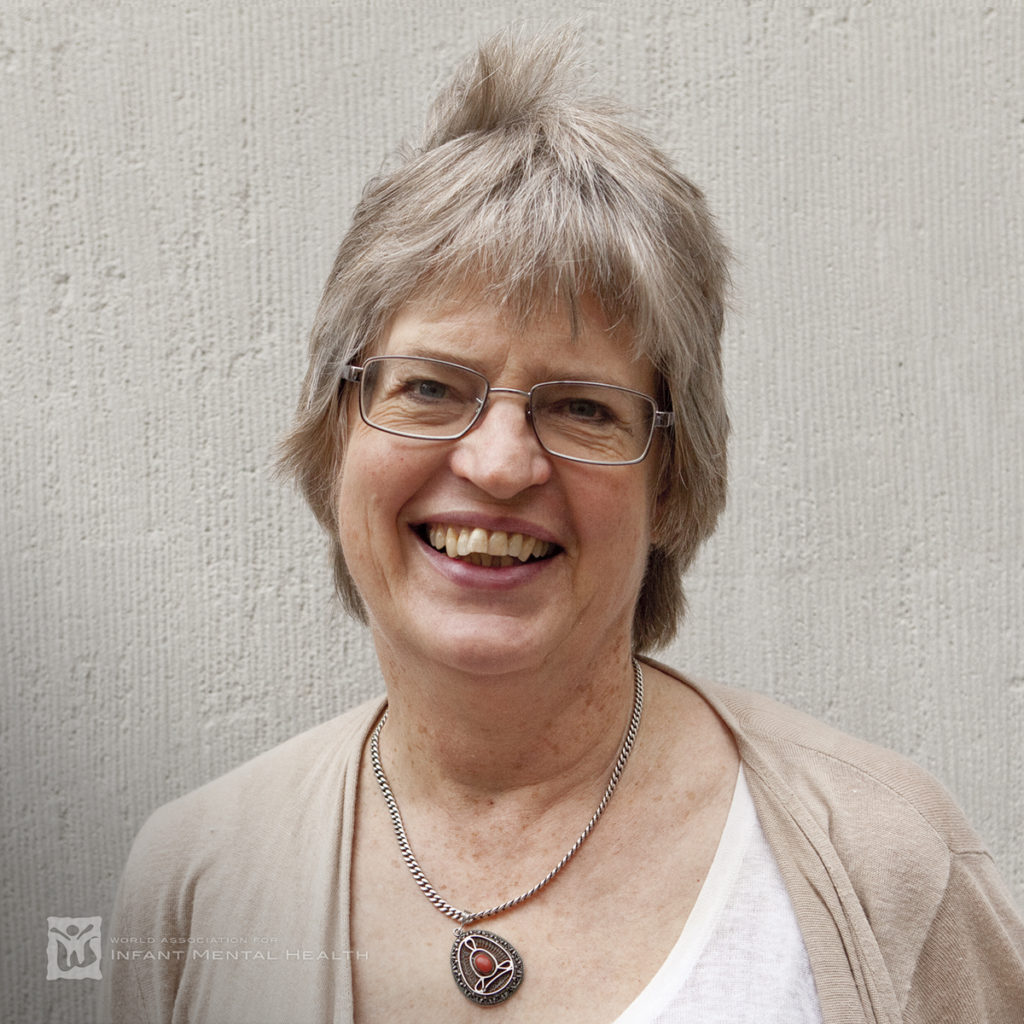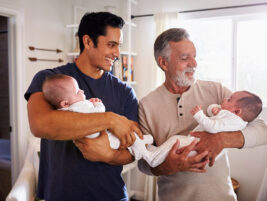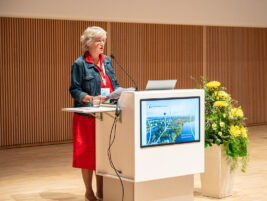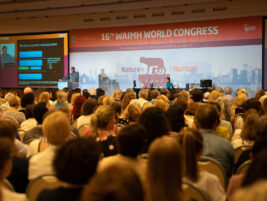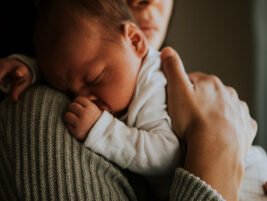An Introduction to Astrid Berg, newly elected for a second term as a WAIMH Board Member
Astrid Berg’s profile conveys her pioneering spirit and long-time commitment to the social and emotional well-being of babies, families and communities. Personal experience fuels professional commitment throughout her long and distinguished career where she has given voice in Africa for babies, families and communities, as well as those who serve them.
I was born in in 1950 in Pretoria, South Africa to immigrant parents. My father left Germany before the outbreak of the WWII in order to pursue his career as a botanist in South Africa. My mother was a war refugee from Eastern Prussia. I was the older of two children.
After qualifying with a medical degree, I trained as a general psychiatrist. This was followed by another few years of part-time sub-specialisation in child and adolescent psychiatry. I was the first student for the new M Phil (Child & Adolescent Psychiatry) degree at the University of Cape Town and graduated in 1992.
At about the same time, I trained in psychoanalysis and became a member of the International Association of Analytical Psychology. The reason for undertaking this extra training was my desire to understand myself better and, through this, to become a more skilled clinician and psychotherapist. It has always been of central importance to me to be able to establish a connection with the ‘other’, notably my patients, in order to truly gain an understanding of their worldview and their experiences.
In the early 1990s, I was introduced to the discipline of Infant Observation, which immediately drew my attention and interest, undoubtedly linked to my own experience as a parent of two children, but also linked to my early years with my own mother who suffered from war traumas. The interest in Infant Mental Health was a natural development from general child psychiatry into a more specific niche within which I could develop professionally. I organized the first national conference in Infant Mental Health in Cape Town in 1995. This was the beginning of a national interest in the early years, as the concept of Infant Mental Health was not well known at that time in South Africa. In 1995 I founded the Western Cape Association for Infant Mental Health, a growingly active body, affiliated with the World Association for Infant Mental Health (WAIMH).
My passion for cultural diversity and my concern for ‘the other’, particularly the ‘other’ who cannot speak, that is, the infant, were the driving forces behind my engagement in long-standing community work in a periurban settlement outside of Cape Town. For over 18 years, I provided a Service to mothers and young children, but at the same time made it into an academic endeavour out of which much of my transcultural writing flowed and for which I gained international recognition.
Living in an ethnically diverse country and working across past political divides has made me realize that I have to understand the cultures in which the families that consult us are embedded. Psychoanalysis has provided me with a framework through which an in-depth understanding of different worldviews has been possible for me.
My involvement with WAIMH dates back to 1996 when I attended the 6th World Congress in Tampere and have since then been to almost every one. In 2012, I organized the 13th International Conference of WAIMH in Cape Town. This was a memorable experience for us, far away from the centres in Europe and the USA, and it marked another starting point for many younger colleagues in South Africa to pursue the path of early intervention.
This burgeoning of interest inspired me to develop an academic degree that would focus on the first three years of life. Stellenbosch University appreciated the idea behind this degree, regarded it as innovative and accepted it with alacrity. Approved by the Senate of the University and then by the National Department of Higher Education and Training in 2015, this is the first such academic degree in Sub-Saharan Africa and possibly in Africa.
In February 2017, we started our M Phil (IMH), a part time Master’s Degree, with eight students from diverse health disciplines, different languages and unique cultural backgrounds. Three students have been fully funded by the Harry Crossley Foundation, a progressive body that enables the studies for postgraduate students who otherwise would not have been able to make use of the opportunity. Being involved with the shaping of the degree has been, and continues to be, an exciting, productive, ‘soul searching’ time, where we grapple together with the struggles of so many of our infants and their caregivers. The weekly Infant Observation seminars form a central pillar for the students’ learning. We were also fortunate to have had several colleagues from abroad to teach and interact with us, amongst others Campbell Paul who visited in May 2017.
In South Africa, we face the challenge of re-thinking and re-evaluating many assumptions that have been engrained in our collective consciousness about the way things are done. This pertains particularly to infancy and to parenting – in a globalized world we can learn from one another, and together we should be able to work out what all our infants need and how each culture can contribute to our children’s greater good.
I am humbled to have been re-elected as a member of the WAIMH Board of Directors. This is an honour and a huge responsibility that I will hold with care. WAIMH is close to my heart. It is a privilege to be part of an Association that acts on behalf of those who cannot speak, but in whom our world’s future lies.
Authors
Astrid Berg
WAIMH board member
Cape Town, South Africa


